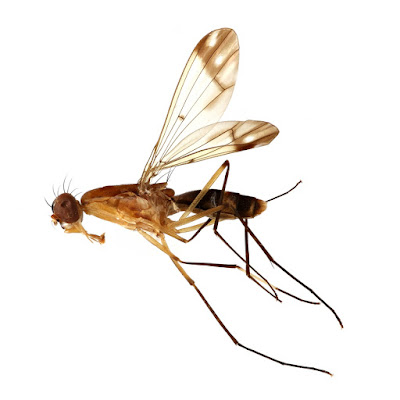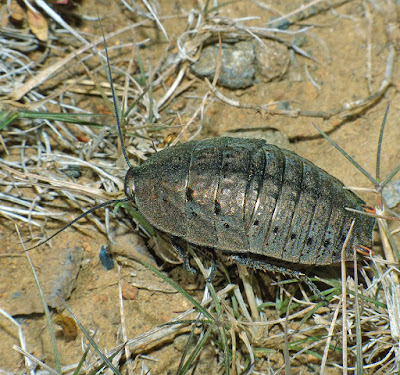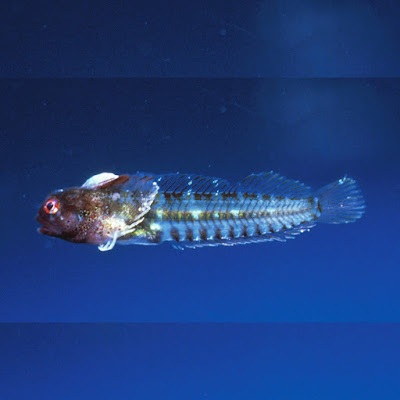[Most Recent Entries] [Calendar View]
Tuesday, February 9th, 2021
| Time | Event | ||
| 2:16a | [Entomology • 2021] Synopsis of Nothybidae (Diptera: Brachycera) from China, with Redescription of Nothybus absens
Abstract The Nothybidae of China are reviewed, including Nothybus absens Lonsdale & Marshall, 2016 which was previously known only from photographs, is here redescribed on the basis of male and female specimens. A key to Chinese species of Nothybidae is provided. Keywords: Diptera, Acalyptratae, Diopsoidea, Nothybus, taxonomy, Oriental Region, Palaearctic Region Nothybus absens Lonsdale & Marshall, 2016 Jiale Zhou, Stephen A. Marshall and Ding Yang. 2021. Synopsis of Nothybidae (Diptera: Brachycera) from China, with Redescription of Nothybus absens Lonsdale & Marshall. Zootaxa. 4926(2); 201–223. DOI: 10.11646/zootaxa.4926.2.3 | ||
| 2:58a | [Entomology • 2021] Polyzosteria yingina • Polyzosteria Cockroaches in Tasmania (Blattodea: Blattidae: Polyzosteriinae) represent A New, Endemic Species, with Allopatric Alpine and Coastal Sub-populations
Abstract We describe the endemic Tasmanian cockroach, Polyzosteria yingina sp. nov. (Henry), 78 years after it was first documented. Evidence from morphology, biogeography and CO1 barcodes is used to distinguish this species from related mainland Australian taxa it has previously been confused with. Polyzosteria yingina sp. nov. has two strongly allopatric populations: a compact alpine population above 1000m and a dispersed east coastal one at sealevel. However, mitochondrial Control Region D-loop molecular analysis suggests a single species identity for these disparate populations. Detailed internal and external morphological descriptions and photographs of living and preserved type material are presented. We also speculate on some hypotheses which could account for the unusual distribution of this charismatic insect. Keywords: Blattodea, Polyzosteria yingina, Taxonomy, molecular biogeography, palawa kani Shasta C. Henry, Stephen L. Cameron, Adam Smolenski and Peter McQuillan. 2021. Polyzosteria Cockroaches in Tasmania (Blattodea: Blattidae: Polyzosteriinae) represent A New, Endemic Species, with Allopatric Alpine and Coastal Sub-populations. Zootaxa. 4926(3); 384–400. DOI: 10.11646/zootaxa.4926.3.4 | ||
| 3:36a | [Ichthyology • 2021] Coralliozetus clausus • A New Species of Tube Blenny (Blenniiformes: Chaenopsidae) endemic to Isla del Coco, Costa Rica
Abstract Coralliozetus clausus, a new species of chaenopsid blenny, endemic to Isla del Coco, Costa Rica, is described. This small species, not exceeding 15 mm SL, is a short-bodied member of the genus along with Coralliozetus cardonae (Caribbean), Coralliozetus angelicus, and Coralliozetus springeri (both eastern Pacific). It differs from its closest relative, C. springeri, known from mainland waters from Costa Rica to Ecuador, in having a single tiny supraorbital cirrus and dark dots on the operculum and branchiostegal membrane of males while C. springeri has paired supraorbital cirri (one of which is substantial in size) and no dots on the operculum. Although two other species of Coralliozetus have been reported from Isla del Coco, this appears to be only member of the genus present on the island. It is the second chaenopsid endemic to Isla del Coco and brings the number of cryptobenthic fishes endemic to Isla del Coco to twelve. Keywords: Pisces, Chaenopsidae, Coralliozetus, tube blennies, Isla del Coco, Costa Rica, island endemic, small body size Philip A. Hastings. 2021. The Pandemic Blenny, Coralliozetus clausus, A New Species of Tube Blenny endemic to Isla del Coco, Costa Rica (Teleostei: Chaenopsidae). Zootaxa. 4926(2); 296–300. DOI: 10.11646/zootaxa.4926.2.10 |
| << Previous Day |
2021/02/09 [Calendar] |
Next Day >> |





